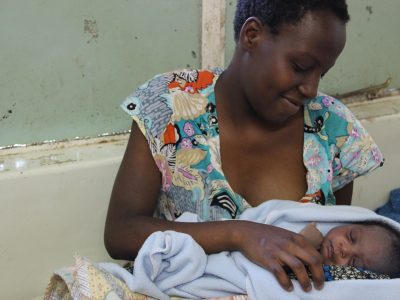Noho ny tolotra vaovao omen’ireo orinasam-piantsoana an-tarobia Malawi Télécommunications Limited sy mpanome antso finday anankiroa dia Telekom Networks Malawi (TNM) sy Celtel Malawi dia afaka mampiditra aterineto any an-trano na amin’ny alalan’ny findainy ny mpanovo an-tserasera Malaoita tamin’ity taona ity. Nampihendratrendratra ny sarambambe tao Malawi rahateo ny nampidirana ny karazan-tolotra anaty finday amin’ny endrika Aterineto finday na avy amin’ny fametrahana hafatra multimedia (amin’ny endrika sy fomba maro), fantatry ny efa zatra azy amin’ny anarana hoe MMS.
Miarahaba ity zavabaovao ity ny mpamahambolongana iray miafina amin’ny solonanarana hoe mile mipetraka ao Mzuzu amin’ny alalan’ny bolongana iray mitondra ny lohateny hoe ICT Development in Malawi.
I wrote once on my first personal website that I wanna be able to browse the internet from my home village in Mzimba. Thanks to Celtel I am able to do that now on my phone though I am still limited to checking a few pages and emails only. Still I wanna browse everything and be able to download software on my laptop when I am there so that my software development isn't limited to location. High Cost of ICT Services. I wonder why something that somewhere else is very cheap could cost so much her.
Efa nanoratra tamin’ny tranonkalako voalohany aho fa iriko indrindra raha mba afaka mivoivoy an’aterineto hatrany amin’ny tanàna kely misy ahy eto Mzimba aho. Mivaly izany faniriako izany ankehitriny noho i Celtel, na dia takelaka vitsivitsy sy ny mailaka ihany aza aloha amin’izao fotoana izao no hany azoko tovozina. Ny ahafahako mijery izay rehetra tiako jerena moa no tena faniriako ary mba ho afaka misintona rindrambaiko ho ao anatin’ny solosaina findaiko ihany koa rehefa any ambanivohitra misy ahy aho mba ahafahako mahalala sy mampivelatra rindrambaiko haiko. Ny fahalafosan’ny tolotry ICT : fa nahoana moa nyzavatra mora any an-kafa no lafo be eto e ?
Tsy maintsy atao ve ny fitiliana tsimok’aretina VIH ?
25.000.000 eo ho eo ny olona tratran’ny SIDA eto Afrika faritra atsimon’i Sahara. Raha famporisihana ny olona hanao fitiliana no atao any amin’ny faritra maro, Mihevitra kosa ny mpamaham-bolongana vaovao Malaoita antsoina hoe Benett Kankuzi [en] fa tokony hoterena hataon’ny rehetra amin’izay io fitiliana VIH io. Antony maro araka ny fiheverany no mahatonga azy hilaza izany ho an’i Botswana efa manana tahan’ny olona mitondra ny tsimokaretina.
- Each citizen will know their status and therefore plan their individual lives properly. This will help individuals not to live in an “ostrich” state by pretending that they do not have the virus yet they don’t exactly know their sero-status.
- Voluntary testing has failed to entice many people to go for the test. Just ask yourself on the number of people who have gone for HIV testing voluntarily. Personally, have you already done so?
Samy hahalala ny toe-tenany ny rehetra ka samy mandrafitra ny fiainany avy amin’ny valin’ny fitiliana. Amin’izay fotoana izay tsy hianona amin'ny fanamarinantena fa tsy mitondra ny tsimokaretina izy nefa tsy mahalala izay tena marina akory.Tsy nandresy lahatra ny olona hanao fitiliana loatra ny fiandrasana ny fahazotoan’ny olona. Manontania ange ianao hoe firy moa ny olona efa nanao fitiliana. Ary moa ianao io (e! ianao mpamaky io, hono) efa nanao fitiliana koa?
Mandritra izany fotoana izany dia vao nanavao indray ny fanafohezana anarana ofisialy mifandraika amin’ny VIH syny SIDA ao amin’ny bolongany i Kondwani Muthali [en]
UNAIDS has revised the acronyms once again, so now people living with HIV are called PLHIV, and young people living with HIV are implicitly called YPLHIV. Old acronyms were PLWHA, PLWA, PLWH, PWH and YPLWH, YLWH, YLWH….With reference to those living with HIV, it is preferable to avoid certain terms: AIDS patient should only be used in amedical context (most of the time, a person with AIDS is not in the role of patient); the term AIDS victim or AIDS sufferer implies that the individual in question is powerless, with no control over his or her life. It is preferable to use ‘people living with HIV’ (PLHIV), since this reflects the fact that an infected person may continue to live well and productively for many years.
Nanova fanafohezanteny ny ONUSIDA mba hiantsoana ny olona miaraka amin’ny VIH ho PLHIV, raha YPLHIV kosa indray no iantsoana ny tanora manana tranga mitovy amin’ny eo ambony. Ny fanafohezanteny teo aloha manko dia PLWHA, PLWA, PLWH, PWH ary YPLWH, YLWH, YLWH… Tsaratsara kokoa manko raha ialana ny voambolana sasany rehefa ny olona miaina amin’ny VIH no tondroina. Eo amin’ny sehatry ny fitsaboana ihany no tokony itenenana ny hoe « voan’ny SIDA ». Ny teny hoe « tratran’ny SIDA » na « mararin’ny SIDA » moa dia toy ny mametraka ilay olona ho tsy afa-mikofoka intsony, na tsy afa-mifehy ny fiainany intsony. Mety kokoa raha ampiasaina ny teny hoe « olona miara-miaina amin’ny SIDA (PLHIV) » satria izay no maneho hoe na dia mitondra ny tsimok’aretina aza izy dia miaina tsara ihany sady afa-mamokatra tsara mandritra ny taona maro.
Lohahevitra hafa mifandraika amin’ny fahasalamana amin’ny jery todika anatin’ny tontolom-bolongana moa dia ny fahabangan’ny rano amin’ny fanabeazana ny mpianatra ao Malawi. Misy mitantara moa fa maro ny tanora vavy no mandao mialoha ny sekoly ialana amin’ny fahasahiranana amin’ny tsy fisian-trano. Pilirani Semu Banda [en] moa mamerina ny antontanisan’ny governemantan’i Malawi momba izany : 10.5% ny tanora vavy mandao sekoly isan-taona, raha 8.4 % kosa ny tanora lahy. Fanampin’izany, 22% n’ny ankizy vavy no tokony hianatra any amin’ny sekoly fanabeazana fototra ny tsy mankany an-tsekoly intsony, ary ny 60% n’ireo tafiditra an-tsekoly kosa dia tsy maharaka ny fandaharam-potoana ara-dalàna.
Mpanao gazety iray mamaham-bolongana mitondra ny lohateny hoe Lack of Running Water Puts Girls’ Education at Risk (Mampididoza amin’ny fanabeazana ny ankizy vavy ny tsy fisian-drano madio) no nametraka ny lohateny fa misedra fanamby sarotra kokoa rehefa tsy misy rano madio ao an-tsekoly.
The hard-working, resolute 13-year-old attends a primary school that has no running water. All 350 pupils at Rita’s school have only two pit-latrines to share, and there is no tap where they can wash their hands after using the toilet.
Rita says she and other adolescent girls find these poor sanitation conditions even more awkward when it is time for their monthly periods: “It’s so difficult to concentrate in class when you know there is no water to clean up with at break time. I usually prefer staying home every time my menses come.”
Mpianatry ny lycée 13 taona, mazoto sy vonona hatrany, no mianatra amina sekoly fanabeazana fototra tsy misy rano isasana. Mpianatra 350 ao amin’ny sekolin’i Rita no mifandimby amin’ny lavaka fivoahana roa ary tsy misy rano isasana tanana akory ao rehefa avy mivoaka ny ankizy. Niteny moa i Rita sy ny namany vavy hafa fa tena sarotra ny mahazo azy ireo rehefa tonga ny fadimbolana. “Tena sarotra ny hifantoka amin’ny fianarana raha vao mieritreritra fotsiny fa tsy misy rano akory amin’ny fakandrivotra. Aleoko mijanona any an-trano rehefa tonga ny fadimbolana ».






